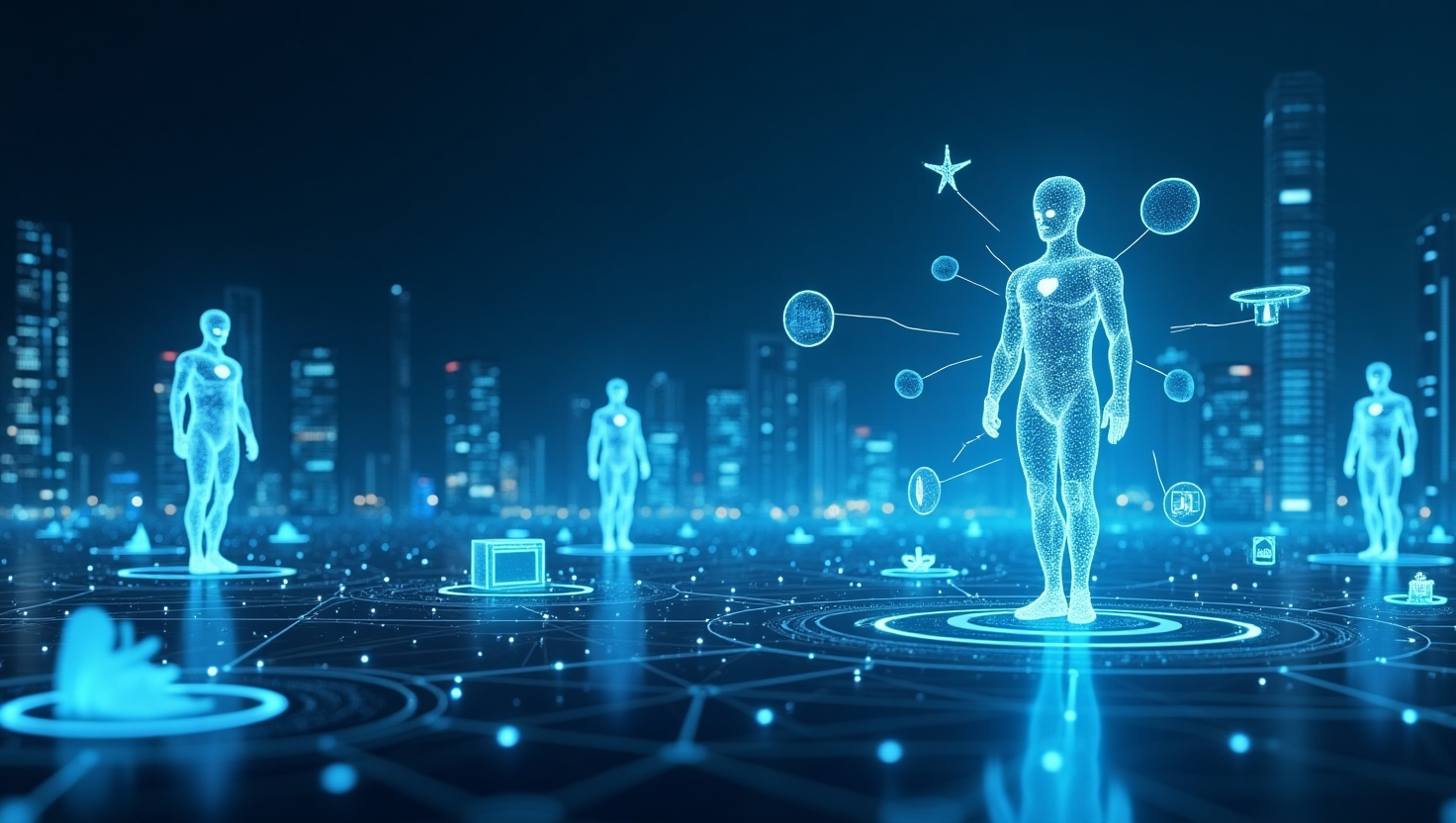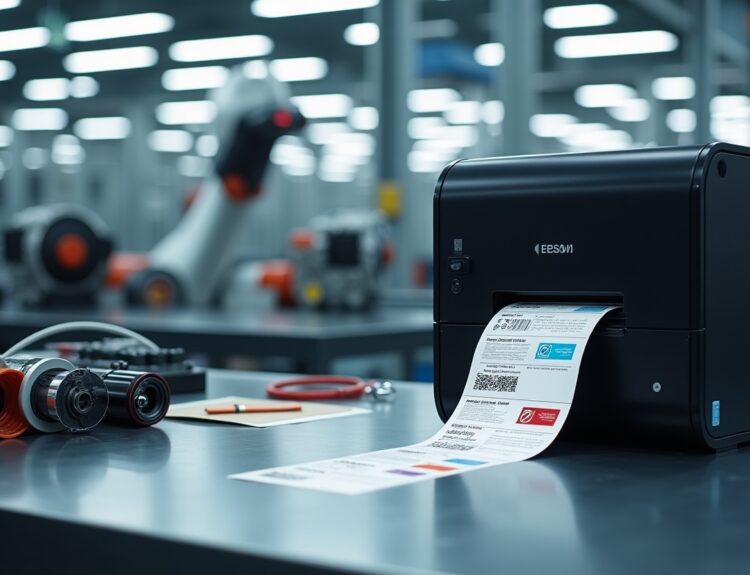It is well known by now that the artificial intelligence is undergoing a drastic change. At the top of this shift is Agentic AI, which is a class of intelligent systems that not only respond to commands but also act independently to achieve a set of complex goals. These autonomous AI agents are not limited to certain markets but are rapidly emerging across different sectors. From customer service and healthcare to logistics and manufacturing, they are redefining the role of technology in decision-making as well as operations. This article provides us with details on some of our queries, like what Agentic AI is, how it functions, its applications, challenges, and what the future holds.
Read more: Best Free AI Chatbot: Your Ultimate Guide to 2025’s Top AI Assistants
What Is Agentic AI?
In 2025, Agentic AI is becoming the most important topic of discussion across industries, from healthcare and finance to logistics and retail. To put it simply, the term refers to a new class of artificial intelligence systems that possess agency: the capacity to act independently toward goals without continuous human interrogation. Unlike traditional AI, which requires specific instructions or human-supervised learning, Agentic AI systems can sense, decide, and act freely based on the objectives set by users or the environment.
– Advertisement –
This great evolution significantly departs from conventional machine learning models and rule-based systems. Agentic AI is absolutely powerful, adaptive and capable of learning in real time. We can study its growing relevance in customer service, logistics optimisation, healthcare automation, and many other sectors where, presently, intelligent decision-making and autonomous actions are giving good results.
Understanding Autonomous AI Agents
Autonomous AI agents are intelligent systems designed in such a way that they are capable of performing any task independently. All this is possible as they are capable of observing environments, interpreting data, setting objectives and then eventually taking action. These agents follow a cognitive model that includes sensing, planning, reasoning, and executing, all without the need for constant human input.
As we have seen in the rule-based or supervised AI systems that follow a given set of instructions or are dependent on labelled data, autonomous artificial intelligence can adapt and self-correct. These systems utilise reinforcement learning, large language models and knowledge graphs to optimise behaviours over time.
– Advertisement –
Agentic AI stands out from other AI tools because it supports goal-directed behaviour. That means, once you have given a goal, an AI agent will break it down into sub-tasks, create a plan itself and automatically head towards completion even in dynamic, unpredictable environments.
Applications of Agentic AI in 2025

AI in Customer Service: Personalised & Proactive Support
Traditional chatbots are reactive, offering scripted responses. In 2025, Agentic AI powers dynamic interaction agents that understand the situation, predict user needs, and then take initiative accordingly. These type of agents can handle complex conversations, escalate when needed and follow up without any human help.
A leading telecom company Vodafone deployed an agentic virtual assistant capable of resolving 90% of customer issues without human intervention. The system learned from each interaction, improving satisfaction scores by 25% within three months.
The greatest advantage of using these agentic AI is their personalised and proactive support. They are capable of reducing resolution times and enhancing customer loyalty that has eventually become an essential tool in CRM strategies.
AI in Logistics: Self-Optimising Supply Chains
In supply chain management, autonomous AI agents now make real-time decisions in route planning, demand forecasting, and inventory control. These agents communicate with IoT devices, traffic systems, and enterprise software to coordinate complex logistics.
For example, Amazon’s centers that are using autonomous artificial intelligence in its warehouse saw a 35% drop in delivery delays and a 20% reduction in costs. The system re-routed shipments during weather disruptions and reallocated stock between warehouses based on predictive models.
Self-optimising supply chains like these represent the future of logistics, where efficiency and adaptability are AI-driven.
AI in Healthcare: Diagnosing, Monitoring & Beyond
Agentic AI has brought major transformative changes in healthcare. Autonomous diagnostics agents now assist doctors by analysing medical histories, lab reports and imaging data to suggest the best treatment options.
Virtual health assistants can learn from individual patient data, adapt care plans over time and even schedule follow-ups or detect anomalies in remote monitoring.
Despite these benefits, ethical concerns and safety protocols are top priorities. Healthcare systems are implementing strict guidelines to ensure that decisions made by autonomous AI agents are explainable, secure, and aligned with medical standards.
Industry Impact & Benefits
Agentic AI is taking over almost every sector. From real-time trading bots in finance to automated content creation in marketing, autonomous systems are proving to be game-changers.
Rather than replacing the workforce, many businesses are using Agentic AI for workforce augmentation. Such firms are freeing up employees from repetitive tasks so they can focus on high-value activities.
Other key benefits include:
- Scalability: AI agents can scale operations without additional human input.
- Efficiency: Automated decisions reduce costs and boost productivity.
- Predictive Power: Systems learn from data patterns, enabling proactive strategy and risk mitigation.
Challenges & Risks
Despite having various advantages, Agentic AI comes with some serious challenges like:
- Over-reliance: Businesses risk delegating too much control to AI systems without oversight.
- Accountability: When autonomous agents make wrong decisions, responsibility becomes a grey area.
- Data Privacy: These systems often rely on sensitive data, raising concerns about misuse or breaches.
- Black-Box Behaviour: Complex models can be opaque, making it hard to understand why certain decisions were made.
- Regulatory Compliance: Different countries are at varied stages of AI legislation, creating challenges for global implementation.
What’s Next for Agentic AI?
Looking ahead, Agentic AI will become even more advanced with emerging technologies. For developers, it means creating modular, interoperable systems that can function across diverse platforms. Businesses must prepare for strategic shifts, and society must engage in conversations about governance and ethical AI.
- Edge computing will allow autonomous agents to operate in real time on local devices, reducing latency.
- IoT integration will enhance situational awareness, especially in smart homes, factories, and cities.
- Robotics will benefit from AI agents capable of complex navigation, manipulation, and human interaction.
The Agentic Future Is Now
Agentic AI is no longer a futuristic concept however it’s a present-day revolution. From transforming customer service to redefining supply chains and enhancing healthcare, autonomous agents are pushing the boundaries of what machines can do.
As we step into an era shaped by intelligent, autonomous decision-making, the question is no longer “if” but what you need to ask yourself is whether your organisation is ready to leverage Agentic AI. Are you really prepared to adopt autonomous AI agents in your business? Now is the time to act, innovate & lead in the age of Agentic Intelligence.
Also Read: Best Cloud Storage Services in 2025: Secure, Smart & Affordable
FAQs
- Is Agentic AI different from the traditional AI?
Yes, Agentic AI different from the traditional AI. Traditional AI typically is dependent on supervised learning and cannot work independently to achieve objectives whereas Agentic AI is capable enough to give independent decision-making and fulfil any goal without continuous human interrogation.
- Can Agentic AI impact my workforce?
Yes, Agentic AI impact can impact your workforce. In fact it brings positive results. Agentic AI differentiates roles by automating repetitive tasks, allowing human workers to focus on creative, strategic, or interpersonal responsibilities.
3. Is it safe to use autonomous AI agent in healthcare?
Yes, it safe to use autonomous AI agent in healthcare with proper safeguards. Most healthcare systems use strict protocols to make sure that the AI decisions are explainable, evidence-based and subject to human oversight.
4. What industries benefit most from Agentic AI?
Industries like customer service, logistics, healthcare, finance, and manufacturing are experiencing the most significant gains from adopting Agentic AI technologies.
5. Can I start implementing Agentic AI in my business?
Yes, you can start implementing Agentic AI in my business. You can start by identifying repetitive or decision-heavy processes that can benefit from automation. The best way is to consult with AI solution providers to pilot agent-based systems that align with your business goals.
– Advertisement –



